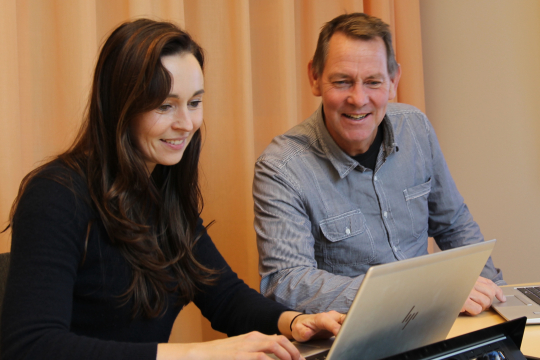The Inclusive Green Economy program has now been up and running for about a year. On November 23-25 most of the 26 participants, civil servants from five East African countries, meet in person for the first time. They will discuss each country’s green economy policies and take peer learning to a new level.
“It’s fantastic that we finally get to meet,” says Emelie César, co-leader for the IGE program and senior policy analyst at the University of Gothenburg. She is looking forward to meeting the participants, so-called IGE fellows, and the local support teams in Kampala, Uganda.
Have compiled reviews of policies
Some IGE fellows will not be able to join in person because of travel restrictions. But due to the pandemic, the program team has a lot of experience in arranging successful hybrid meetings.
One part of the training in the IGE program has been to compile national policy reviews for each of the five countries, Ethiopia, Kenya, Rwanda, Tanzania, and Uganda. Those reviews will be the main topic of the cross-country workshops in this three-day meeting.
“We believe this type of peer learning is a relatively new and very useful way of sharing knowledge among the IGE Fellows,” says Emelie César.
Take home new learnings
All IGE fellows have studied and contributed to their country’s policy reviews. They will now give feedback to the others on their policies. Four themes are covered in different workshops: Agriculture, energy, forest, and urban development.
“The purpose of this is to learn from each other, and inspire all to bring new knowledge and ideas back to their daily work, comments Anders Ekbom, at the University of Gothenburg, and co-leader of the IGE Program.
Will develop the program
Another meeting within the IGE program is planned for March 2022, where this year’s IGE fellows will meet the ones, who will be IGE fellows of the program’s second year.
“We hope to develop the program, deepen the work in the present countries and expand it to more countries. And one important aspect will be to keep the alumni involved as a great resource,” says Anders Ekbom.
By: Petra Hansson
Facts, IGE in practice
Environment for Development (EfD) and the Gothenburg Centre for Sustainable Development (GMV) at the University of Gothenburg, collaborate in an extensive program for capacity development in five countries. This program aims at strengthening government ministries and agencies in East Africa to transform towards an inclusive green economy (IGE).
The program consists of five work packages:
* Trainings-of-trainers, that is getting tools for training colleagues
* Cross-country peer-learning on IGE policies
* Inclusive green economy in practice – individual projects
* Inclusion: understanding and promoting social acceptance for IGE reforms
* Program management, digital learning, and communication
